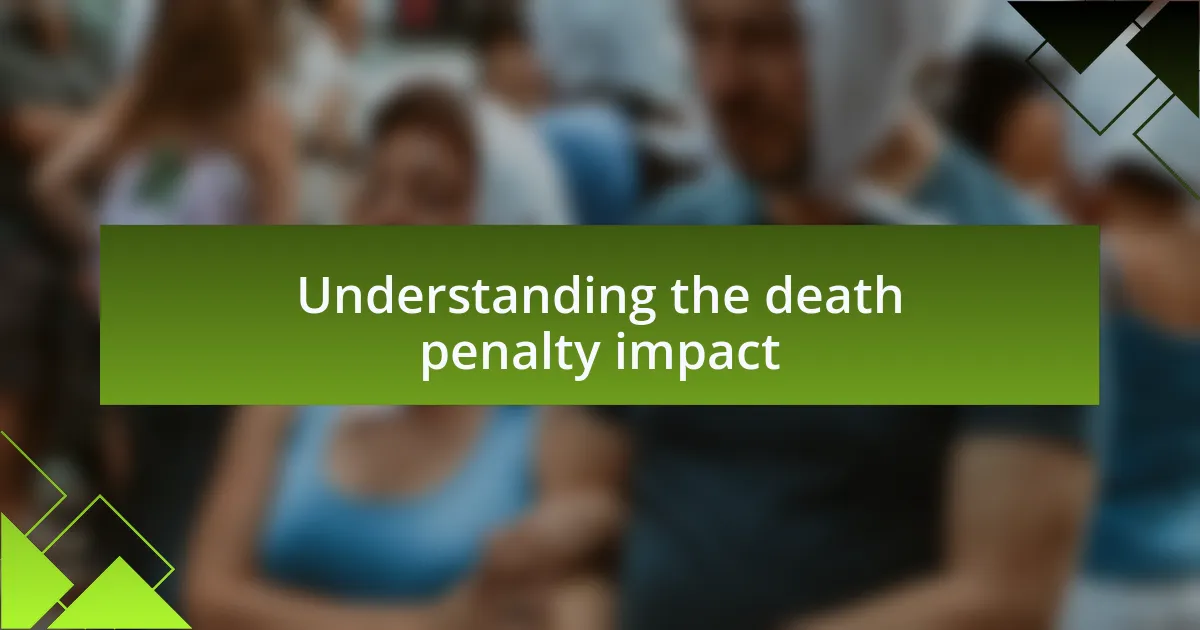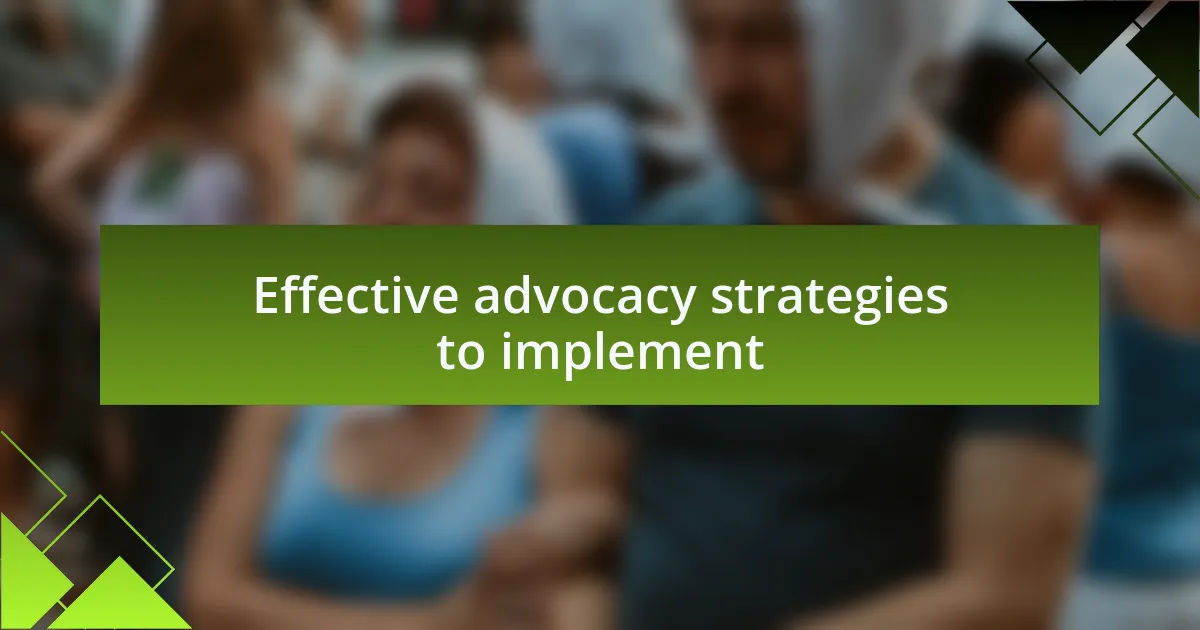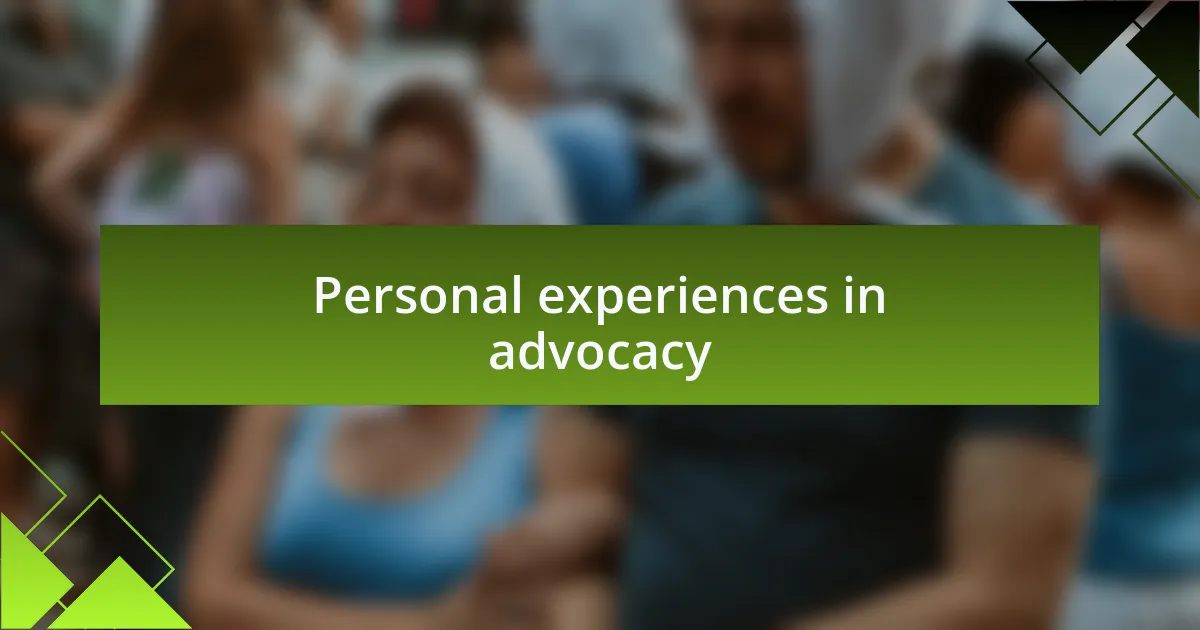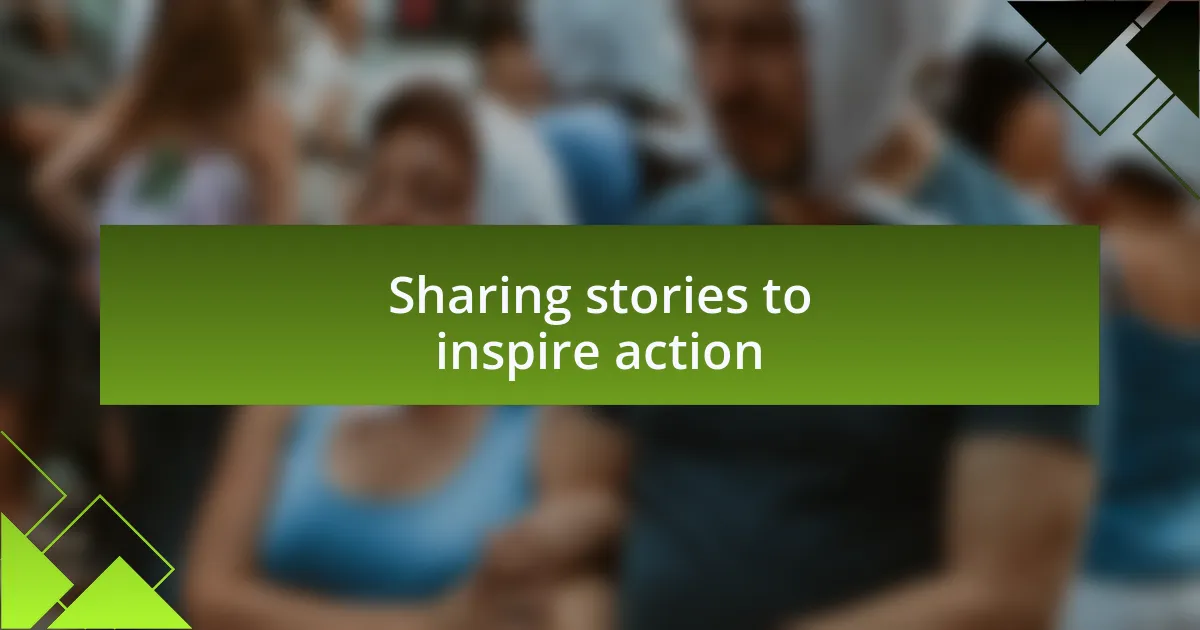Key takeaways:
- The death penalty’s impact affects not only the individuals involved but also families and communities, perpetuating grief and societal discord.
- Storytelling is a powerful advocacy tool that personalizes the death penalty issue, making it relatable and igniting empathy in audiences.
- Engagement with local communities through workshops fosters solidarity and amplifies advocacy efforts against the death penalty.
- Sharing personal stories in advocacy creates a collective narrative that inspires action and strengthens community bonds for justice.

Understanding the death penalty impact
The impact of the death penalty extends far beyond the individual facing execution; it’s a ripple effect that touches families, communities, and even society at large. I remember speaking with a mother whose son was wrongfully convicted and sentenced to death. The anguish she expressed was palpable—how could one unfair punishment affect so many lives, with grief and anger seeping into her family’s every interaction?
Consider the emotional toll on the victims’ families, too. While they may seek justice, the delay of prolonged litigation and execution dates often leads to a cycle of distress and uncertainty. When I reflect on this aspect, I can’t help but wonder: Does justice truly serve its purpose if it perpetuates suffering for all involved?
Moreover, the societal implications are significant. A system that enforces the death penalty often sends a message that some lives are worth more than others. This ideology fosters a chilling environment where the value of life is compromised. Engaging with communities on this topic has opened my eyes to how these issues intertwine, igniting a collective dialogue on humanity and morality that is desperately needed.

Effective advocacy strategies to implement
One effective advocacy strategy I’ve found is storytelling. When I share the real-life experiences of those affected by the death penalty, it transforms abstract statistics into relatable narratives. I vividly recall attending a town hall meeting where a former inmate described his harrowing journey through the legal system. Hearing his voice crack as he recounted the day he learned he was exonerated shifted the room’s energy—people could no longer view the death penalty as a mere policy issue; it became personal.
Engaging with local communities is another powerful approach. I once collaborated with a community group focused on criminal justice reform. We hosted workshops where residents could express their concerns and learn about the death penalty’s implications. The conversations sparked were enlightening; one person shared how a close friend’s execution had fueled their activism. This shared vulnerability created a sense of solidarity, showing me firsthand that local investment can amplify advocacy efforts significantly.
Additionally, utilizing social media effectively can broaden the reach of your advocacy. I remember launching a campaign that combined impactful visuals with personal testimonies from individuals directly affected by capital punishment. The engagement was astounding; people began to share their own stories, forming a grassroots movement. Isn’t it fascinating how a simple tweet can spark action and inspire change in ways we never imagined? Social media has the potential to unite a diverse audience under a common cause, making it an invaluable tool for activists.

Personal experiences in advocacy
While advocating for change, personal experiences have been transformative for me. I distinctly recall a day spent at a vigil for a victim of wrongful execution. The raw emotion in the air—a mix of grief and determination—left a lasting imprint on my heart. It prompted me to consider the human cost behind every statistic, driving home the point that advocacy isn’t just about policies; it’s about real lives.
There was a moment during a panel discussion when a mother, tears in her eyes, shared her son’s story of facing the death penalty. Hearing her articulate the profound impact of that experience, I realized that the most powerful advocacy stems from shared pain and hope. Her story ignited a fire within me, pushing me to connect with others and amplify their voices. It led me to ponder: how often do we overlook the power of personal stories in effecting change?
One memorable experience was organizing a letter-writing campaign in my hometown. As I sat with friends crafting messages to legislators, I felt a sense of camaraderie and purpose. Each letter became a personal commitment to advocate against injustice. I wondered if others felt the same surge of passion while participating. That moment cemented my belief that when we combine our individual stories, they morph into a collective narrative that compels action.

Sharing stories to inspire action
Sharing stories can profoundly influence how we advocate for change, especially on sensitive issues like the death penalty. I remember attending a storytelling workshop where a former inmate shared his harrowing experience on death row. His narrative, filled with raw emotion and resilience, made me question how many lives are affected by a flawed justice system. Can a single story reshape our understanding of justice? I believe it can, as it invites empathy and drives us to take action.
One evening, after hearing a courageous woman talk about her brother’s wrongful conviction, I felt an overwhelming urge to do more than just listen. Her words lingered in my mind, a haunting reminder of the personal toll that the death penalty takes on families. It dawned on me that every time we share these experiences, we create ripples of awareness that can inspire others to join our cause. Isn’t it fascinating how storytelling can bridge the gap between individuals, igniting collective passion for change?
Lately, I’ve started integrating personal stories into my advocacy workshops, encouraging participants to share their narratives. Watching them unfold their experiences has been incredibly moving. Each story shared not only enhances our understanding but also creates a powerful sense of solidarity among us. Have you ever noticed how the act of sharing can transform a group? In these moments, I find that we are not just advocates; we are a community united by the shared goal of justice.